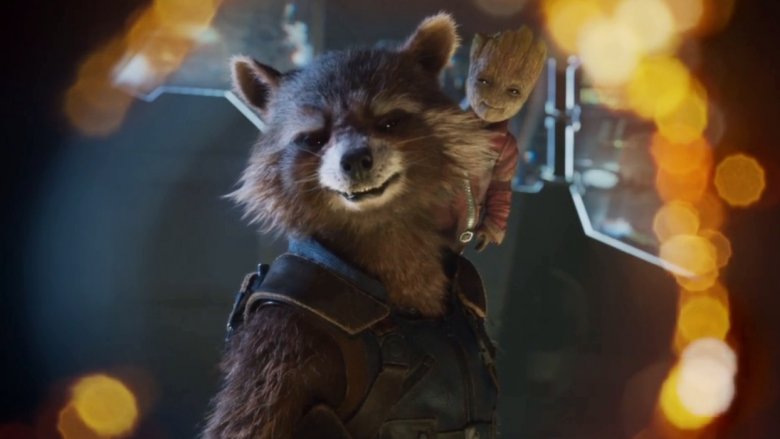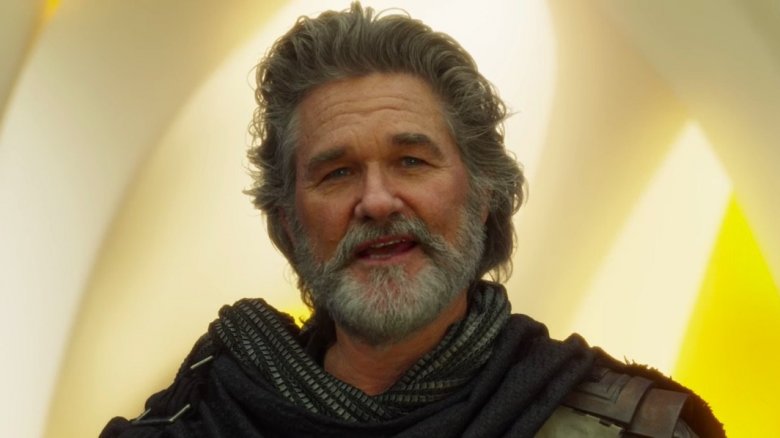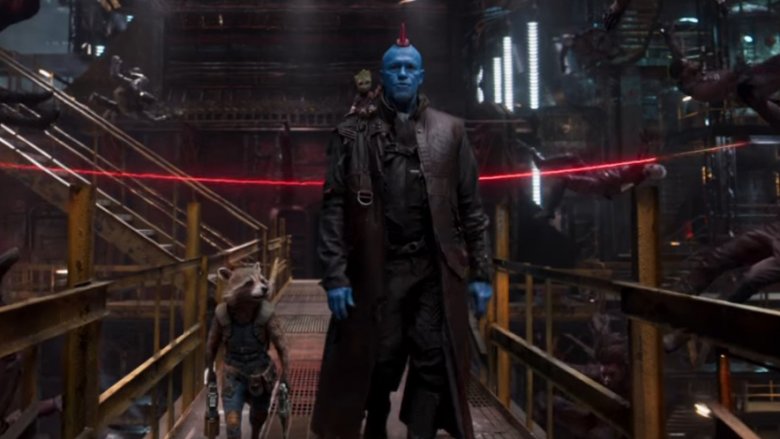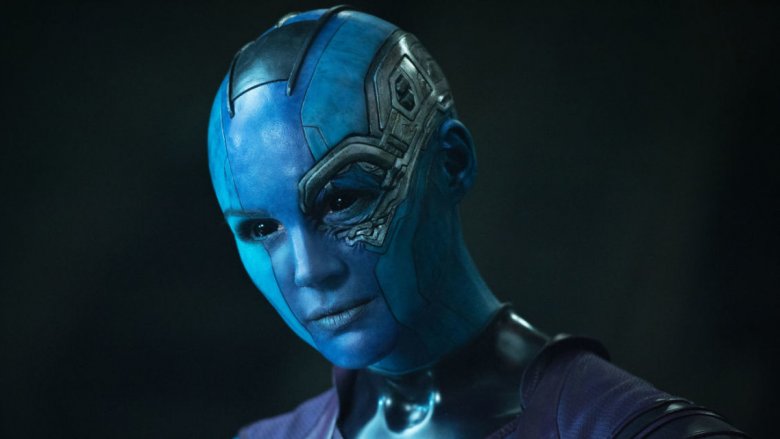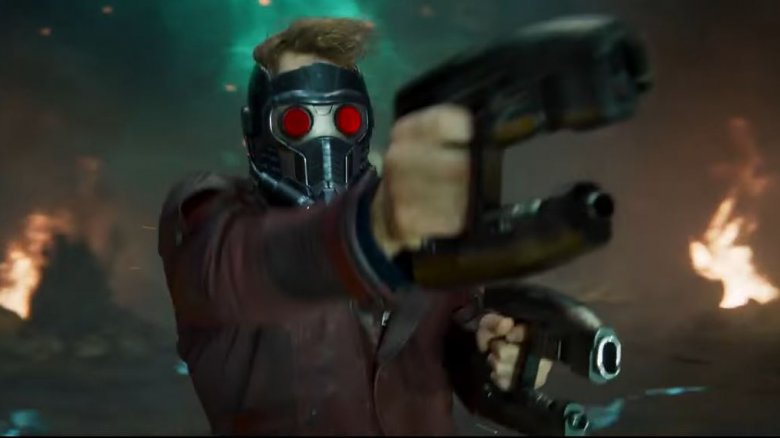The Biggest Plot Holes In Guardians Of The Galaxy Vol. 2
Guardians of the Galaxy Vol. 2 is something even rarer than an Infinity Stone: a blockbuster sequel that actually managed to live up to the original movie—and even surpass it in some respects—while juggling character development and action to create a nearly flawless viewing experience.
"Nearly" is the key word there, however; eagle-eyed audience members may have noticed a few plot holes that hold this movie back. Fortunately, you don't need Rocket Raccoon to build you a scanner in order to find them—just check out our handy guide to the biggest plot holes in Guardians of the Galaxy Vol. 2.
Sneaky trash panda
The somewhat flimsy inciting incident for the Guardians' latest adventure is that Rocket Racoon decides to steal some of the super-powerful batteries the team is hired by the Sovereign to guard. Understandably, the Sovereign are quite upset by this, and they proceed to chase the Guardians from one end of the galaxy to the other in pursuit of the batteries (as well as vengeance). This is all well and good, except for the small fact that Rocket should never have been able to steal them in the first place.
We see throughout the movie that the Sovereign are very technologically advanced. This is made most manifest in their remote control drone ships, which allow them to safely explore and fight their way through space without truly risking their own lives. Such an advanced race should have been closely monitoring the Guardians before, during, and after their dramatic fight to save the batteries (probably by using a remote drone). And considering that the Guardians bring the batteries to the Sovereign, Rocket would have had to steal them more or less directly in front of a group of paranoid aliens...the same aliens that were able to catch Nebula when she tried to steal them in what was presumably a much sneakier manner.
Ultimately, it makes perfect sense that Rocket's theft gets noticed—what makes no sense is that Groot knows how much time has passed before someone bothers to scan the very prize that the leader of their entire race has determined is so damn important that they have to hire outsiders to protect it.
Unnecessary confessions
Speaking of weird inciting incidents, Star-Lord's relationship to his cosmic father figure Ego is transformed by a single sentence. Previously, the two had been bonding extensively: Star-Lord got to hear more about his parents, and even got some closure after finally playing catch with his dad. Then, seemingly out of nowhere, Ego admits to putting a brain tumor in Star-Lord's mother. Star-Lord immediately tries to kill his dad, and while his motivation to avenge the murder of his mother makes perfect sense, Ego admitting to that murder makes none at all.
On paper, the only real motivation for killing her is that Ego saw this as a rather extreme way of ensuring that his love for this Earth woman wouldn't distract him from his cosmic purpose. Even if we accept that this is a logical way to escape your feelings, Ego has no realistic motivation to tell Star-Lord what he's done. His entire evil plot involves getting his cosmically-powered son to willingly go along with his plan. So why admit to the murder of the person Star-Lord values most? The truth is that there is no reason, and this is a rare motivational misstep from a character that is otherwise written far better than the standard cookie-cutter superhero villain.
Yondu's impossible whistle
While this was a bit of a plot hole in the first movie, the sequel to Guardians of the Galaxy takes Yondu's magical arrow to the next level of complete ridiculousness. Nominally, it's partially controlled by the fin on top of his head and partially by Yondu whistling. However, a major part of Yondu and Rocket's dramatic escape from prison involves Yondu killing just about everyone on board with that arrow by sending it both far beyond the range of his whistling and into areas where he can't actually see. It seemingly operates with a mind of its own.
The problem of the arrow is actually brought back home by one of this sequel movie's many comedic stingers. In one scene, we see Yondu's faithful sidekick, Kraglin, trying to operate the whistle after Yondu's heroic death. He's got the fin on, he starts whistling—and he accidentally impales Drax. That scene highly implies that Kraglin (or anyone else) would need to be able to see where the arrow's going...something Yondu proved wrong earlier in the movie.
Nebulous motivations
Ego doesn't have a monopoly on suddenly shifting motivations. After a halfhearted attempt to try to kill Gamora, we find out Nebula really just wants a relationship with her sister. Nebula reveals that Thanos periodically stripped away parts of her physical body and replaced them with bionic upgrades, ostensibly to bring her up to par with Gamora's peerless fighting technique. And even before making up with Gamora, Nebula announces to Kraglin that she has a new purpose: she's going to destroy Thanos for what he's done to her.
The acts that Nebula wants to get revenge for took place before the events of the first Guardians of the Galaxy movie. So why wouldn't she turn against Thanos earlier? It would have been easier for her if she'd been working from the inside while she was still a member of his inner circle. Instead, she waits until she's a disgraced prisoner. It's one of the rare times we can practically see Marvel executives pulling the strings and offering a preliminary justification (however flimsy) for Nebula's inevitable appearance in Avengers: Infinity War.
Ego the living punching bag
The Marvel Cinematic Universe has developed a bad reputation for poor final fights with villains. Underdeveloped characters like Ronan the Accuser have deaths that function more like punchlines, and even well-developed characters like Loki are typically dispatched with a quick, comedic wink at the audience. Compared to these instances, the climactic final fight against an entire evil planet in this movie was pretty memorable, and we can clearly see our heroes struggle every step of the way. Here's the thing, though: there should have been no struggle, as there should have been no way for Ego to lose.
Our heroes were fighting on the surface of the planet. Moreover, the entire planet was controlled, at the molecular level, by Ego himself. If he was truly interested in winning the battle, then the first thing he should have done was to simply straight-up immobilize the Guardians. It would certainly be disappointing for viewers, but it'd make a lot more sense than a millennia-old god suddenly forgetting to do the most basic thing he's literally been doing for millions of years.

